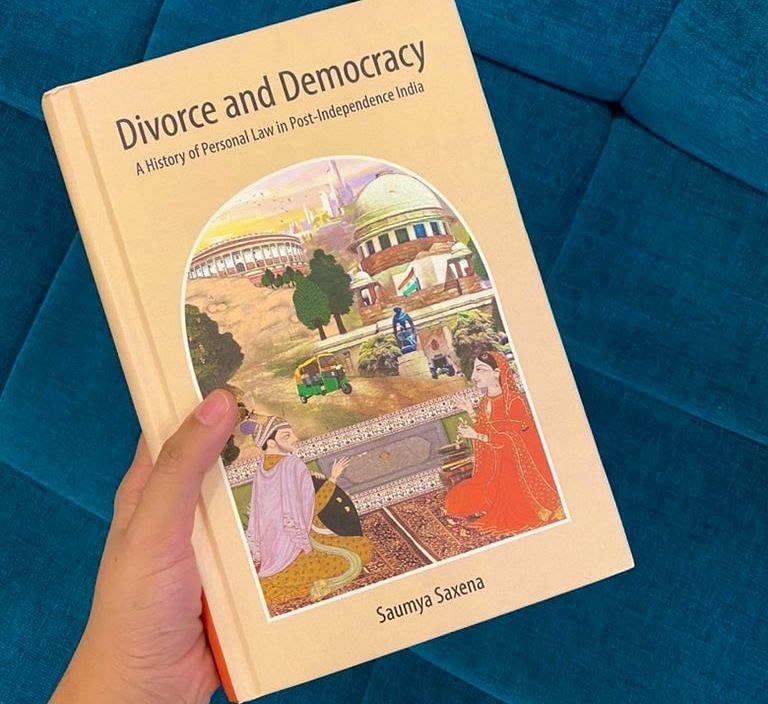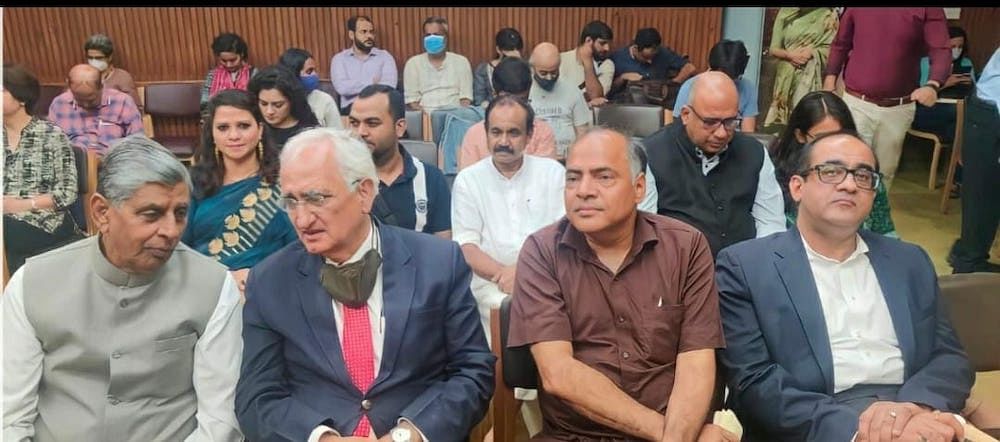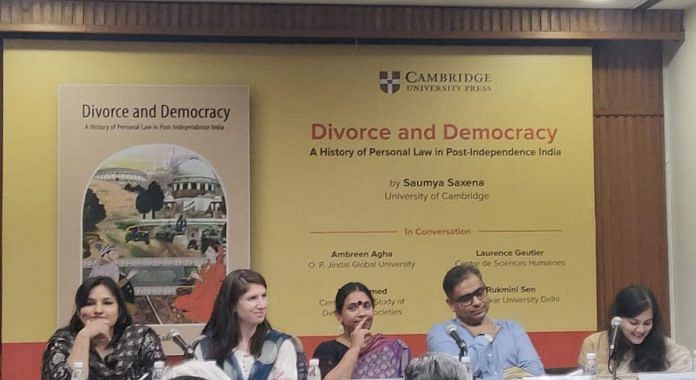The State may value marriage, but democracy has, historically, loved divorce.
This provocative line captures the State’s anxieties around divorce in Cambridge scholar Saumya Saxena’s new book Divorce and Democracy: A History of Personal Law in Post-Independence India.
There could not have been a better time for a book about religious personal laws in India and the minefield of ambiguities they bring along. The hijab, triple talaq, Sabarimala matters and the call for Uniform Civil Code have re-energised discussions around religion, women and the State in recent years. The last time this perfect storm occurred was in the 1980s with the Shah Bano judgment and its rollback.
At a packed book launch event Friday in Delhi’s India International Centre (IIC), author Saxena said that when it comes to matters of Sharia and the Shastras, Quran and the Constitution, you just can’t get it right.
“The personal laws have been challenged by women, political actors, clergy. Some have litigated that they are not in consonance with the Constitution, others have questioned if they are linked to the divine,” she said.
The popular notion that codifying religion into law will make religion more rigid is misplaced. It actually opens up dialogue and contestation, says her book. Published by Cambridge University Press, Saxena’s book traces the responses of legislature, courts and India’s civil society to the idea of divorce. The divorce jurisprudence then acts as an entry point to study Indian democracy and feminism.
It is like using the abortion lens to understand the United States.
Also read: An Unlikely Police Chief—Ex-DGP BL Vohra’s new book raises key questions on policing in India
Indian women and the religion-or-rights debate
The book launch was followed by a rich 90-minute panel discussion. The topics ranged from divorce, personal laws, feminist movements, sati, triple talaq, Constituent Assembly debates to Sharia courts, Hindu nationalism and Bilkis Bano.
“The debate around personal laws is couched as one of tradition versus modernity. But at its heart, it is really about the women’s question,” said Ambedkar University professor Rukmini Sen.

The demand for a Uniform Civil Code (UCC) isn’t new. Article 44 of the Directive Principles of the Indian Constitution says that the State shall endeavour for UCC when the country is ready. BR Ambedkar had said that only a mad government would embark on it right away. Over the years, the advocates of UCC have packaged it as a gender justice project but women’s groups themselves have been ambivalent about it.
Saxena, who has been a member of the 21st Law Commission, writes in the book that the “unanimous and repeated rejection of UCC by contemporary feminist scholarship is a recognition of the significance of religion to identity and selfhood”.
This rejection complicates the popular notion that religious law and individual liberty are binary. Indian women have resisted the religion-or-rights choice for long.
One outcome of this push and pull between the State, courts, clergy and women’s groups has been the phenomenon that Saxena calls “religious feminism” in her book.
“Muslim women were expected to pick one side over the other during the Shah Bano controversy,” said Ambreen Agha, OP Jindal University professor. “They were pitted against their own community. That was a crisis in the feminist movement.”
A similar crisis happened during the triple talaq debate when Muslim women groups such as the Bharatiya Muslim Mahila Andolan (BMMA) and Bebaak Collective differed – one campaigned for reform while the other said that such cases are too few and criminalisation was not necessary.
In the 1990s, it was the Women’s Reservation Bill that split the feminist movement over caste. And the matter of race divided American feminist groups.
“It is ok if the women’s movement does not speak in one voice. When it does, it can end up leaving some women out,” Saxena said.
Also read: India’s liberals must decide: Oppose UCC because of BJP or uphold secular principles?
The Nehru question
And finally, no book launch or panel discussion about politics, religion and history is complete these days in India without questioning the role of Jawaharlal Nehru.
Saumya Saxena fleetingly mentioned that it is incorrect to say that Congress governments never tried to intervene in Muslim personal laws. She said that Nehru formed a commission in the 1960s to reform these laws, but it was cancelled because of Zakir Husain’s opposition.
One member of the audience asked why Husain had opposed it. Saxena replied that the cancellation was the result of a personal closed-door conversation with Nehru at Husain’s residence late one night.
The audience member wasn’t willing to give up so easily. He then pointed to former Congress minister Salman Khurshid sitting in the front row.

“Ask Salman Khurshid about what transpired. Zakir Husain was his grandfather,” he said. The room broke into loud laughter. Everybody turned to look at Khurshid expectantly.
An awkward Khurshid looked left and right in bewilderment. “You have to wait for my book for that,” he said.



